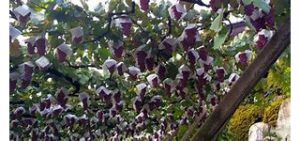Cognac Changes – it’s Moving with the Times
 The very strict regulations surrounding the production of cognac have been in place since the BNIC’s inception at the end of WWII. However, recent changes in the economic and geographic environments are forcing these age-old practices to be reviewed. Burgeoning exports have seen cognac sales increase for the last 4 years so cognac changes are afoot. It has just been agreed that the area of vineyards in the appellation next year will rise by 3500 hectares(ha). This follows an increase of 1500 ha last year. Global warming is also influencing vineyards across the country. As temperatures rise the grapes ripen earlier and the harvest is brought forward. In the cognac region there are consequences for the process that follows this earlier harvest. Crushing the grapes and fermentation then take place when daytime temperatures are still too warm and night time temperatures are not low enough. If the temperature of the grape juice during fermentation exceeds 80 ˚F, the classic cognac taste will be distorted. A new research laboratory has just been set up by China and France to investigate the creation of new grape varieties that are better adapted to climate change. Some ‘super’ grapes, that are resistant to rot, have already been cultivated. Perhaps they should also look to Japan who always have to cope with hot, moist conditions? They employ innovative techniques such as wax paper hats over the bunches of fruit, plastic sheets to protect from excessive rainfall and fans to stimulate air conditioning.
The very strict regulations surrounding the production of cognac have been in place since the BNIC’s inception at the end of WWII. However, recent changes in the economic and geographic environments are forcing these age-old practices to be reviewed. Burgeoning exports have seen cognac sales increase for the last 4 years so cognac changes are afoot. It has just been agreed that the area of vineyards in the appellation next year will rise by 3500 hectares(ha). This follows an increase of 1500 ha last year. Global warming is also influencing vineyards across the country. As temperatures rise the grapes ripen earlier and the harvest is brought forward. In the cognac region there are consequences for the process that follows this earlier harvest. Crushing the grapes and fermentation then take place when daytime temperatures are still too warm and night time temperatures are not low enough. If the temperature of the grape juice during fermentation exceeds 80 ˚F, the classic cognac taste will be distorted. A new research laboratory has just been set up by China and France to investigate the creation of new grape varieties that are better adapted to climate change. Some ‘super’ grapes, that are resistant to rot, have already been cultivated. Perhaps they should also look to Japan who always have to cope with hot, moist conditions? They employ innovative techniques such as wax paper hats over the bunches of fruit, plastic sheets to protect from excessive rainfall and fans to stimulate air conditioning.
